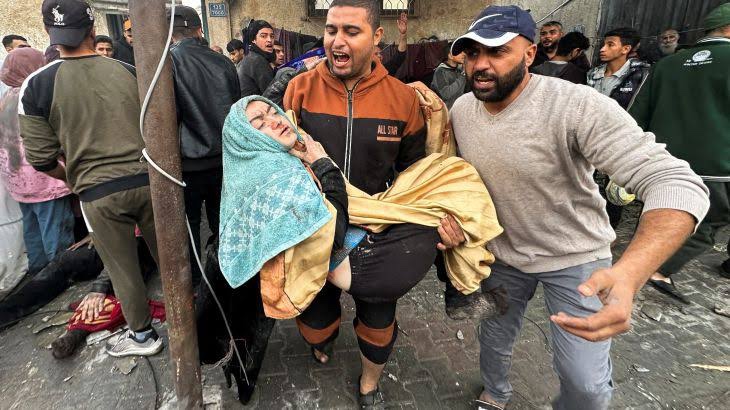Gaza death toll reaches alarming heights, UN issues dire famine warning

The embattled Gaza Strip continues to witness escalating violence, with the death toll rapidly approaching 30,000 amidst ongoing clashes between Israeli forces and Hamas militants.
The region’s health ministry recorded an additional 91 fatalities resulting from overnight Israeli airstrikes, exacerbating an already dire humanitarian crisis marked by acute food shortages and deteriorating living conditions, according to reports from UN agencies.
Efforts by mediators from Egypt, Qatar, and the United States to broker a ceasefire have intensified, with hopes emerging for a potential truce within days. Negotiations have reportedly centered on a proposed six-week cessation of hostilities, with key elements including the release of Israeli hostages held since Hamas’s October 7 attack and the exchange of Palestinian detainees held by Israel.
While optimism cautiously grows among mediators, challenges persist on the ground, with Qatar expressing hopefulness but acknowledging the fluidity of the situation. Amidst escalating tensions, Qatar has proposed a ceasefire preceding the onset of Ramadan in early March, underscoring the urgency of finding a resolution to the conflict.
Hamas, which had previously demanded a complete Israeli withdrawal from Gaza, appears to be open to a compromise that would see Israeli forces retreat from urban centers, potentially paving the way for the return of displaced Palestinians and the delivery of humanitarian aid.
However, the toll of the conflict continues to mount, with casualties disproportionately affecting civilians, including women and children. The devastating impact of the war has left hundreds of thousands displaced within Gaza, exacerbating an already dire humanitarian situation characterized by looming famine and widespread starvation.
International concern has intensified as aid organizations struggle to access affected areas, with the World Food Programme warning of an imminent humanitarian catastrophe in northern Gaza. Despite efforts to deliver aid, access remains limited, further exacerbating the suffering of residents facing acute shortages of food and essential supplies.
As diplomatic efforts continue, the specter of further military escalation looms large, with airstrikes persisting in various parts of Gaza. Against this backdrop, calls for international intervention to ensure the protection of civilians and facilitate humanitarian access have grown louder, underscoring the urgent need for a sustainable ceasefire to avert further loss of life and alleviate the suffering of Gaza’s civilian population.












